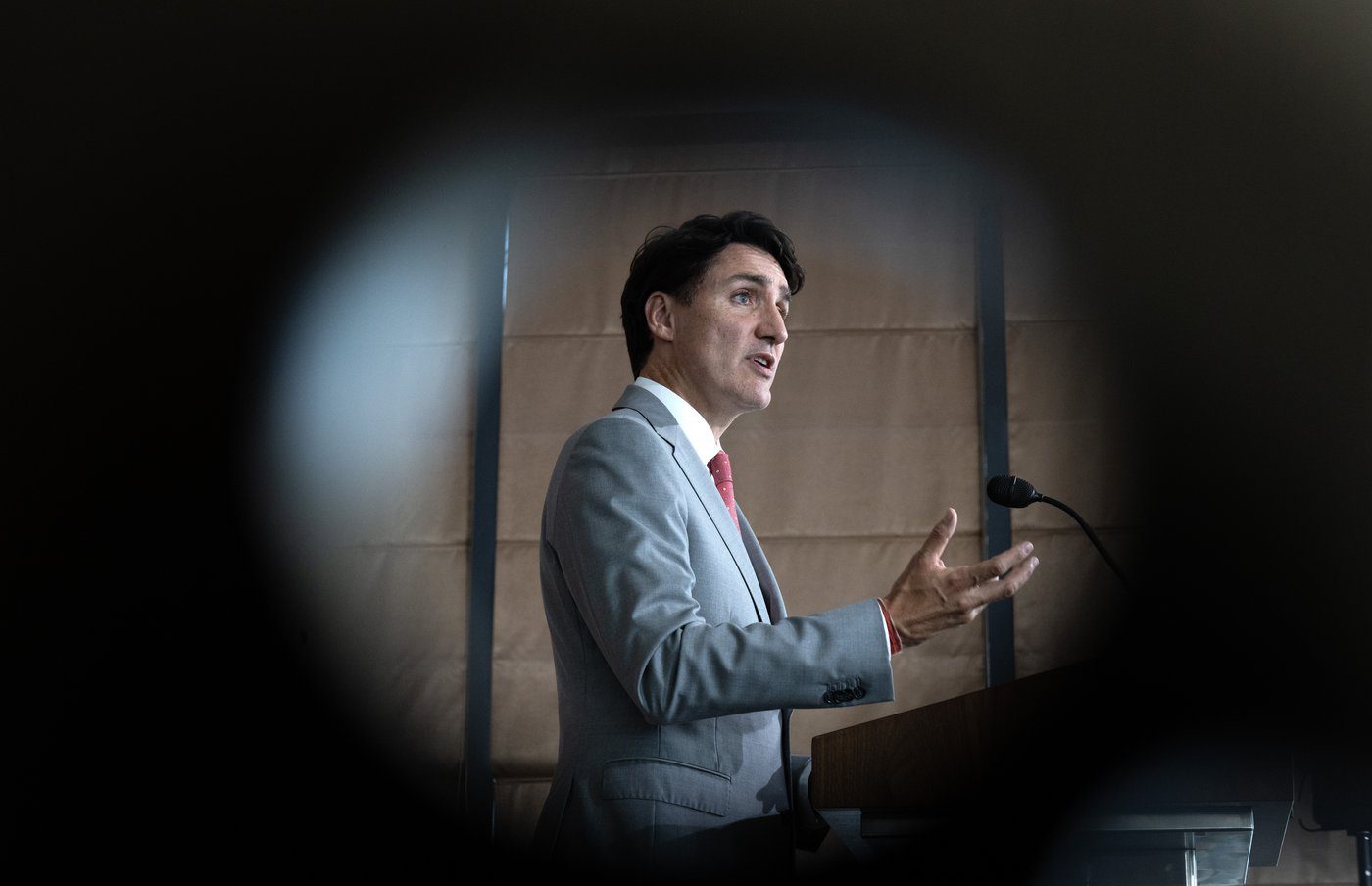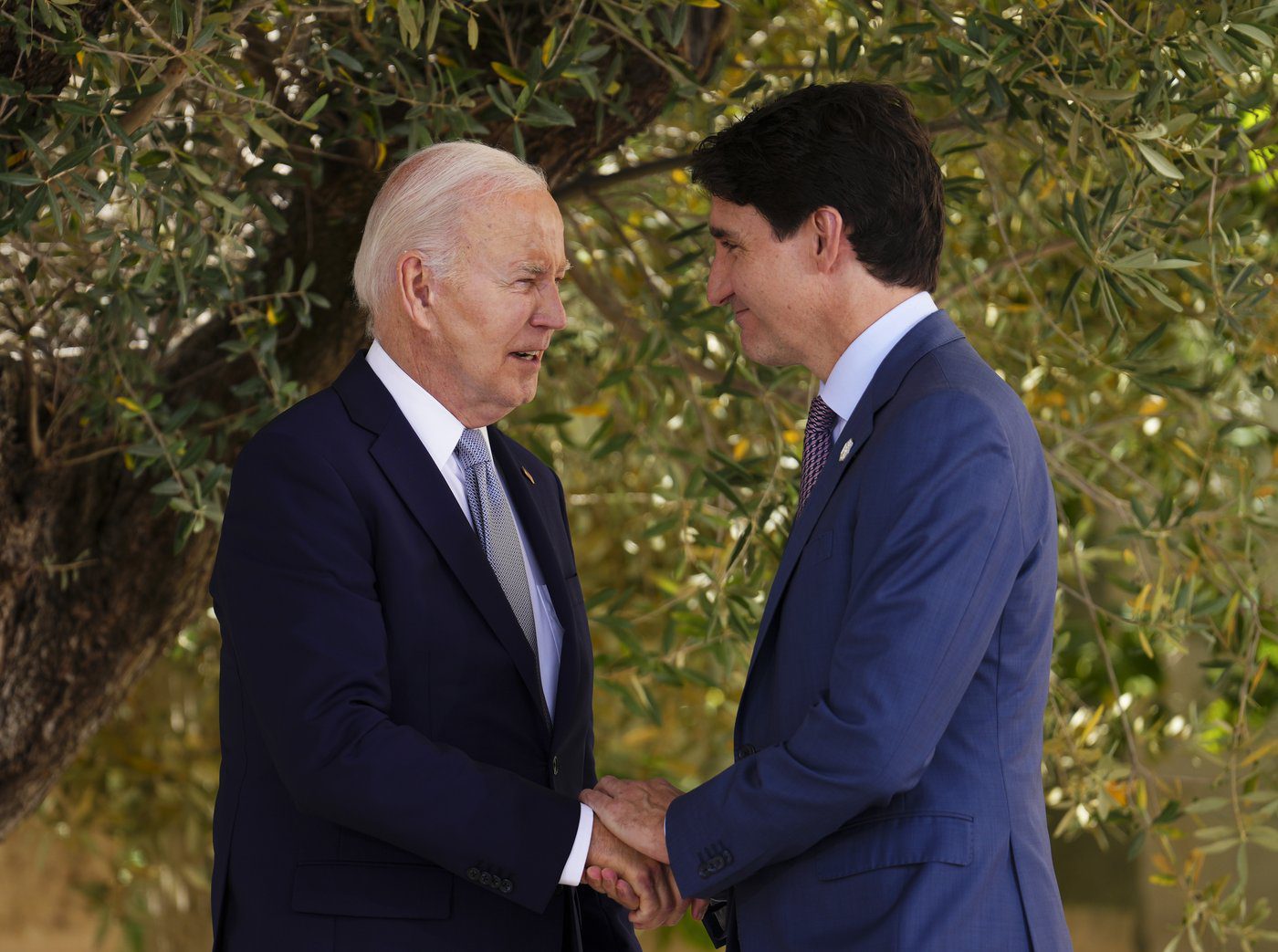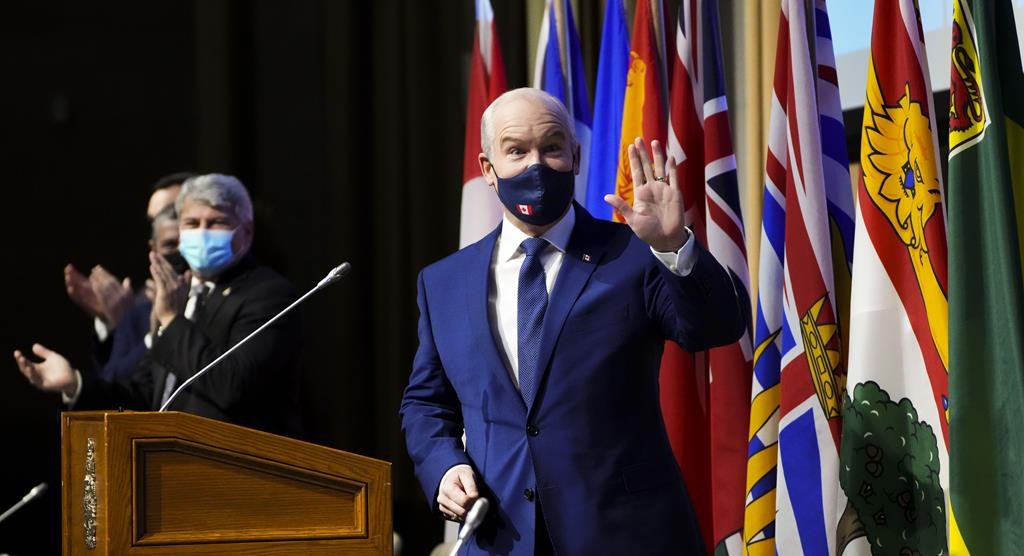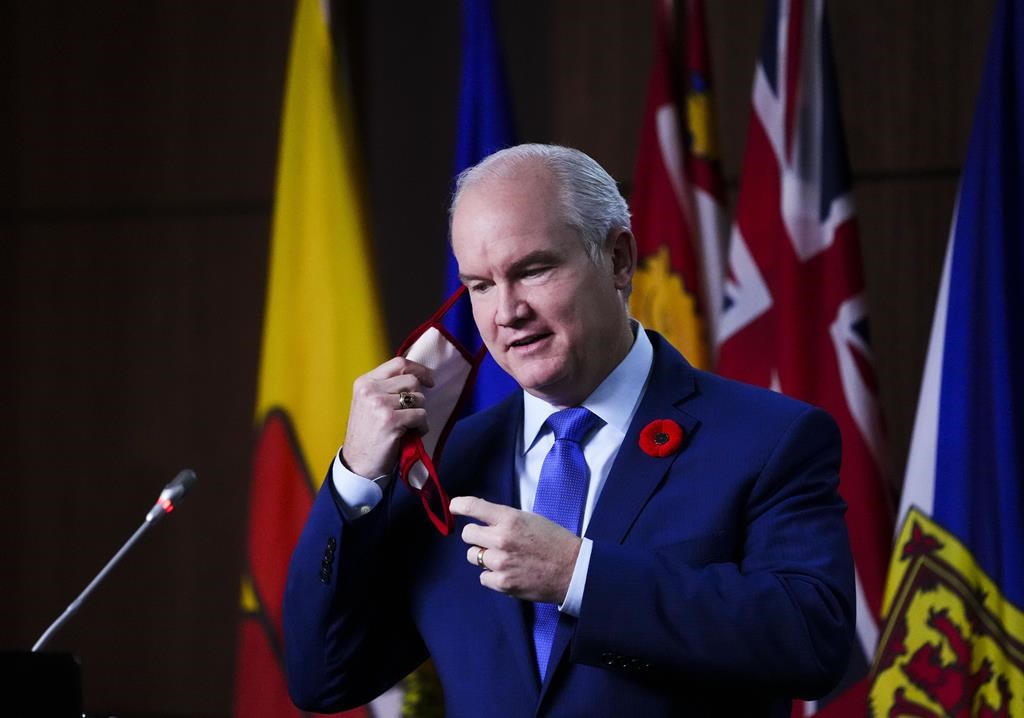This content is restricted to subscribers

The views, opinions and positions expressed by columnists and contributors are the author’s alone. They do not inherently or expressly reflect the views, opinions and/or positions of our publication.

This content is restricted to subscribers
The views, opinions and positions expressed by columnists and contributors are the author’s alone. They do not inherently or expressly reflect the views, opinions and/or positions of our publication.

Political leadership campaigns can be won and lost in a heartbeat. Watching a leadership campaign implode before it’s even started is the equivalent of flatlining in politics.
That’s what happened to former BC Premier Christy Clark. Her dreams of becoming federal Liberal leader and Prime Minister vanished into thin air in no time flat.
How did this happen?
Clark broke two cardinal rules in politics that I’ve occasionally said in private. First, don’t lie in public because you can easily get caught. Second, if you’re determined to lie, then you better know how to do it successfully. She failed in both respects, and her leadership bid was basically dead on arrival.
Let’s go back to the beginning.
When Justin Trudeau announced on Jan. 6 that he would be resigning as Liberal leader and Prime Minister when his successor was chosen, the wheels were set in motion. Perspective leadership candidates like Chrystia Freeland and Mark Carney had to get their paperwork in order, and pay a $350,000 entrance fee, by Jan. 23. The leadership vote will conclude on Mar. 9, and the new party leader will be announced later that day.
Clark, who served as BC Premier from 2011 to 2017, was getting ready to join the race. She was viewed as a centrist Liberal, although her provincial BC Liberal Party (now BC United) is regarded as centre-right. Some federal Liberals were enthusiastic about her leadership bid, in spite of the fact that she’s never held a federal seat and doesn’t speak French. She had built a team of experienced politicos, and was perceived to be one of the main leadership candidates.
Everything came to a screeching halt after her Jan. 10 interview on CBC Radio’s The House.
Catherine Cullen, the program’s host, asked Clark this pertinent question. “You have called yourself a lifelong Liberal, but you voted in the last federal Conservative leadership race. That would have required you to cancel your Liberal Party membership in order to join the Conservative Party. How long were you a member of the Conservative Party?”
The former Premier’s response? “Never,” accompanied with a burst of laughter.
Cullen was clearly taken aback. It was not only common knowledge that Clark had endorsed Jean Charest during the 2022 Conservative leadership race, but it had been previously reported by Canadian news outlets. She had even considered running for the Conservative leadership back in 2020, lest we forget.
What on earth was she talking about?
Cullen then asked Clark, “You voted in the race, did you not?” Clark told her, “No, I didn’t. I didn’t. And I never got a membership, and I never got a ballot. What I did, though, is…” which led Cullen to interrupt and say, “We reached out to the Conservative Party, who told us, in fact, that your membership was cancelled.”
The stunned look on Clark’s face spoke volumes. “Oh, well, why don’t they show, come out and show my membership or my ballot? They never sent me any of those, although I wouldn’t put it past them to manufacture one of them.”
Within hours, everything that Clark said and insinuated had fallen apart.
“Christy Clark purchased a Conservative Party membership through Jean Charest’s leadership campaign,” Conservative communications director Sarah Fischer wrote in an email to the CBC. “That membership is no longer active.” A screenshot of Clark’s Conservative membership in the riding of Vancouver Centre from June 2, 2022 to June 30, 2023 was posted on social media by longtime Conservative activist and political advisor Jenni Byrne.
The CBC also posted a damning video clip of an Aug. 21, 2022 interview that Clark conducted with the Conservative Journal of Canada. She specifically said, “I’m joining the party so I can support Mr. Charest and what I think he can bring to the national dialogue.”
An interview between Cullen and CBC’s Power and Politics host David Cochrane put the final dagger in Clark’s leadership bid.
“She went on to say in the interview that she called the Conservative Party numerous times to ask where her ballot was,” Cullen told Cochrane. “And I said, well, wouldn’t you have to be a member in order to expect a ballot from them?” Cullen continued, “I asked if she cancelled her Liberal Party membership. She said no. Her team now says that she was, in fact, not a registered Liberal when she supported Jean Charest.”
Canada’s political and media chattering classes were completely dumbfounded. How could an experienced politician like Clark have left herself wide open to this type of criticism? What a mess.
Clark then sheepishly posted this to her X account later that evening, “Well, I misspoke. Sh*t happens. Lesson learned…”
Sorry, “misspoke?” No, Clark had lied through her teeth and couldn’t cover her tracks.
It didn’t make sense why she had done this. All Clark had to do was explain to Cullen that she had briefly been a Conservative Party member and voted for Charest. She didn’t support Pierre Poilievre, the newly elected Conservative leader, and let her membership lapse after one year. She then returned to the Liberal fold, where she’s been ever since.
How hard was this to say? It wouldn’t have been held against her. Some of her fellow Liberals have belonged to different parties and shifted their political allegiances. Conservatives, New Democrats, Greens and others have done this in the past, too.
Yet, her first inclination was to concoct a lie that quickly unravelled. She suggested the Conservatives would “manufacture” her party membership when, in fact, they had all the real evidence and documentation they needed at their fingertips. She disappointed her political team. She lost the trust of Liberal MPs and supporters. She ruined her public image. She destroyed her leadership bid before it had even started.
When Clark announced on Jan. 14 that she wasn’t going to run, no-one was surprised. What were her reasons for making the “difficult decision to step back?” The timing to organize a successful campaign wasn’t favourable, and there was “simply not enough time…to effectively connect with Francophone Canadians in their language.”
Putting those two roadblocks aside, let’s be honest. Clark isn’t running for one reason: the lie that imploded her leadership campaign and potentially destroyed her political career for good. If that’s not an example of flatlining in politics, I don’t know what is.
Michael Taube, a long-time newspaper columnist and political commentator, was a speechwriter for former Canadian prime minister Stephen Harper.
The views, opinions and positions expressed by columnists and contributors are the author’s alone. They do not inherently or expressly reflect the views, opinions and/or positions of our publication.

This content is restricted to subscribers
The views, opinions and positions expressed by columnists and contributors are the author’s alone. They do not inherently or expressly reflect the views, opinions and/or positions of our publication.

For the average Edmontonian, the Fringe is a great summer theatre festival.
But for Alberta’s political watchers, the fringe is something else entirely. It’s the folks out there on the outer edge of the right wing of conservative politics.
It’s a constituency that Premier Danielle Smith feels the need to pay attention to, particularly if she wants to sweep her party’s leadership review in November.
This summer Smith is keeping some of those edgy right-wing issues on the agenda, popping up at town halls and never shying away from the final out-there question or two at the end of otherwise dull media conferences.
Social media and the regular media may be full of hand-wringing about bread and butter health care, daycare and economic concerns. But Smith is finding time to promise action on the use of personal pronouns in school and keeping “biologically male” athletes out of women’s sport.
She is promising a beefed-up Alberta Bill of Rights will be introduced in the fall. She says she can’t reveal all the changes, but the right to refuse medical treatment (which obviously is aimed at the Covid vaccine conspiracy cadre) will be included.
The premier has been patient at town halls throughout the province which are often hijacked by those with more extreme views on the whole vaccine issue.
She has pushed back on those who propose that the vaccines be altogether banned, however. But the fringe is broadening out its interests well beyond the Covid health measures that spawned convoys and blockades.
For instance, a little lobbying group from southern Alberta is anxious that the right to keep and bear arms be included in that revamped Bill of Rights. And how about the right to protect one’s property, which smacks of U.S.-style Stand Your Ground provisions?
Smith certainly fought federal gun law provisions in the past, but hasn’t committed yet to enshrining guns in the Bill of Rights. But who knows what might be in the legislation coming out in the fall?
While finding ways to satisfy the right has been Smith’s great strength so far, it’s not always easy.
Take immigration as a broad topic. The premier wants to double the province’s population and she says immigration from around the globe will be needed to achieve that target.
But there’s a good portion of the fringe building up a head of steam to oppose that influx.
Take the manifesto of another right-wing group, the 1905 Committee. That group is fairly focused on a few major issues, and one of those is immigration.
“Alberta should amend the Canada-Alberta Cooperation on Immigration to create a unique immigration policy focusing on attracting skilled, young immigrants aligned with Western values, while limiting overall immigration to safeguard economic interests and cultural heritage, following the model of the Canada-Quebec Accord,” the committee says on its website.
So basically they want not so many immigrants, and they should be as much like us as possible.
The fringe social media folk have been even more adamant than that about rejecting the need for more immigration. Smith felt the need to blink.
Her office tried to download the anger on the federal government with a press release saying Ottawa’s “open-border policies are resulting in unsustainable levels of population increase that make it very difficult for any province…to keep up, leading to shortages in housing, public infrastructure and needed health and education professionals.”
How the premier walks that particular line in the next few months should be pretty interesting. The fringe base might be pushing that anti-immigration agenda, but the province, and Smith’s own party, is becoming more and more culturally diverse.
That push-pull of the fringe and the majority of Albertans is more and more evident. Pressure groups like Take Back Alberta have been able to mobilize at the constituency level and seize seats on the United Conservative Party’s board, but Smith’s job is to serve all Albertans, and, of course, get elected again.
Leger 360 did a survey in early August on the government’s performance. The UCP is still comfortably out in front in voting intentions, but the trend line shows Smith’s popularity slumping somewhat and approval of government action on the basics, such as health care, the economy and jobs, also softening.
It will be interesting to see if adding more edgy issues and surprise legislation like a revised Bill of Rights is the sort of thing that will bolster or hurt Smith’s overall popularity.
The views, opinions and positions expressed by columnists and contributors are the author’s alone. They do not inherently or expressly reflect the views, opinions and/or positions of our publication.

This content is restricted to subscribers
The views, opinions and positions expressed by columnists and contributors are the author’s alone. They do not inherently or expressly reflect the views, opinions and/or positions of our publication.

Environmentalist Gerald Kutney recently observed: “The summer of 2023 … the season that Canada burned … and burned … and burned.”
Similar observations about the “record-setting wildfire season” (and beyond) are being noted in Ottawa. Three days after Labour Day 2023, federal Minister for Emergency Preparedness Harjit Sajjan was pointing to what has been called “a more national approach to disaster response.”
Mr. Sajjan went on : “We’re looking at all different types of disasters, doing the lessons-learned, and we’ll come out with the appropriate response … I would say all options are currently on the table but we don’t have an answer for you yet.”
The pondering of options has been going on for a few months now. And in thinking about Mr. Sajjan’s “appropriate response” one obvious example has loomed — the sometimes fabled Federal Emergency Management Agency (or FEMA) in the United States next door.
Early this past June 2023 The Canadian Press was reporting that “Ottawa looking at options for a national disaster response agency as wildfires rage … FEMA has coordinated the response to disasters in U.S. for decades.”
A few days later York University Disaster & Emergency Management Professor Ali Asgary was arguing that “Canada urgently needs a FEMA-like emergency management agency.”
For good and bad reasons it is almost certainly not appropriate to talk too exactly about any “Canadian FEMA”! Just to start with, provinces (10) are stronger in Canadian federalism than states (50) in American federalism (thanks in part to the ongoing example of Quebec?).
The US federal bureaucracy is similarly very sprawling and diverse. FEMA is at least a perhaps unusually effective expression of the Washington alphabet soup syndrome. The Ottawa scene is tighter, more disciplined by Canada’s UK-style parliamentary government.
Even today FEMA is far from perfect. It has been claimed that middle-income Americans tend to get more from its financial and other disaster assistance than low-income Americans.
Republican administrations have also intermittently compromised FEMA’s professional competence with old-school political appointments. George W. Bush’s choice of Michael Brown as head of FEMA in 2003 is a case in point. (Brown was a lawyer who had unsuccessfully run for Congress as a Republican, with at best limited disaster management experience. He resigned from FEMA in 2005, after harsh criticism over the handling of Hurricane Katrina.)
At the same time, Canada’s 1960’s prime minister (and 1957 Nobel Peace Prize winner) Lester Pearson once told a TV interviewer that in his youth he thought the only good models for government in Canada came from the United Kingdom. In his more experienced old age he had also come to admire some models from the United States!
As York University Professor Ali Asgary similarly urged this past June, in the 2020s there is a strong argument, that, alongside much other more troubling news stateside, FEMA remains an impressive national disaster response institution.
Canada, again, is not the same as the United States, despite all contrary rumours. The FEMA model cannot just be copied up north. As a new age of more frequent disasters haunts the horizon, however, Lester Pearson would almost certainly advise that FEMA’s long experience does have useful lessons-learned for Canada.
One example may be especially important. President Jimmy Carter created FEMA in 1979. But it was not until President Bill Clinton appointed his former Arkansas emergency manager James Lee Witt FEMA director in 1993 that the agency began to develop its modern reputation as a model emergency management organization.
James Lee Witt brought a kind of disaster management evangelism to the culture of the Federal Emergency Management Agency in the USA. And this energized the professionalism he also brought to the organization, in a way that has somehow endured.
As explained by a subsequent Atlanta Journal-Constitution editorial “FEMA has developed a sterling reputation for delivering disaster-relief services, a far cry from its abysmal standing before James Lee Witt took its helm .. he instilled in the agency a spirit of preparedness, of service to the customer, of willingness to listen to ideas of local and state officials to make the system work better.”
One lesson-learned would seem to be that it’s not enough to create some organizational structure for “a more national approach to disaster response.” You also need a James Lee Witt to get the structure up and running effectively.
Does such a person exist in Canada today? (Maybe right now fighting a fire or a flood somewhere, in BC or Nova Scotia or northern Quebec?)
The views, opinions and positions expressed by columnists and contributors are the author’s alone. They do not inherently or expressly reflect the views, opinions and/or positions of our publication.

This content is restricted to subscribers
The views, opinions and positions expressed by columnists and contributors are the author’s alone. They do not inherently or expressly reflect the views, opinions and/or positions of our publication.

If there existed a political “Ten Commandments” carved in stone tablets, the very first one on the list would likely be “Thou Shalt Not Alienate Thy Base.”
After all, it’s hard to win an election when even your own side doesn’t like you.
Sounds pretty basic, right? Sounds like a concept any leader worth his or her salt would understand.
So why is it then Conservative Party leader Erin O’Toole seems intent on making himself as unpopular as possible with his grassroots base?
I mean, just think about what he’s done since taking over the leadership.
For one thing, on a whole range of issues from carbon taxes to gun rights to deficits, O’Toole has blatantly abandoned conservative principles and values to take on policy stances that are essentially indistinguishable from what the Liberals offer.
How could his conservative base, which tends be ideologically-oriented, not feel snubbed by this? The sense of their betrayal is likely even more acute, since during the Conservative Party leadership race, O’Toole had branded himself as a principled conservative and as a champion of the party’s grassroots.
Talk about false advertising!
At any rate, I guess if O’Toole had won the last election, all would have been forgiven.
But, of course, he didn’t win and now discontent with his leadership is simmering within the Conservative Party’s ranks.
In response to this growing anger the wise move for O’Toole, it seems to me, should be for him to offer some sort of olive branch to the base, just to reassure grassroots party members that he’s willing to win back their support.
Instead, however, for some inexplicable reason, he has decided to try and bully his base into submission.
Just recently, for instance, O’Toole, pour encourager les autres, booted Senator Denise Batters from the Conservative caucus after she had the audacity to launch a petition calling for an earlier than scheduled leadership review.
In announcing her expulsion, O’Toole sounded a tough note saying anyone “who’s not putting the team and the country first will not be part of this team.”
Basically, his message seems to this: “It’s my way or the highway and if you don’t like it, don’t let the door hit you on the way out.”
Yet, if he thinks such heavy-handed action will stifle dissent, he’s likely in for a rude awakening.
In fact, it could make his situation even worse, since he’s turned Batters into a martyr, someone who disaffected Tories can now rally around.
On top of that, keep in mind, angry party members have effective ways of protesting against an unpopular leader.
For example, they might start redirecting their party donations to right-wing advocacy groups, or they might stop volunteering for the party or they might stay home on election day or they might end up voting for the People’s Party.
So, in a way, O’Toole’s decision to openly antagonize his base is like a military commander ordering his artillery to bombard his own supply lines.
It just doesn’t make strategic sense.
Mind you, some might say, O’Toole’s acting no differently than former Conservative Prime Minister Stephen Harper, who also jettisoned certain conservative principles and who also ruled the party with savage discipline.
Yet, O’Toole is no Harper.
True, Harper didn’t always give the party’s ideologues everything they wanted, but he always treated his base with respect.
And for that, he won the loyalty of the rank and file.
That’s a lesson O’Toole should heed.
At any rate, the one possible explanation for O’Toole’s behaviour is that there’s actually a method to his madness, that he actually wants to dig out the party’s ideological roots, that’s he hoping hard-core conservatives will abandon his party.
Indeed, it has been suggested to me that O’Toole’s overall game plan is basically to water down the party’s ideology until it’s nothing but an idealess, wishy-washy, non-confrontational, conservative-in-name-only political entity; a Conservative party, in short, that lacks conservatives.
This he hopes will make his party more appealing to the media and more attractive to Liberal voters.
If that indeed is O’Toole’s plan, then he is taking a mighty big gamble.
As American conservative activist Morton Blackwell once noted “you cannot make friends of your enemies by making enemies of your friends.”
The views, opinions and positions expressed by columnists and contributors are the author’s alone. They do not inherently or expressly reflect the views, opinions and/or positions of our publication.